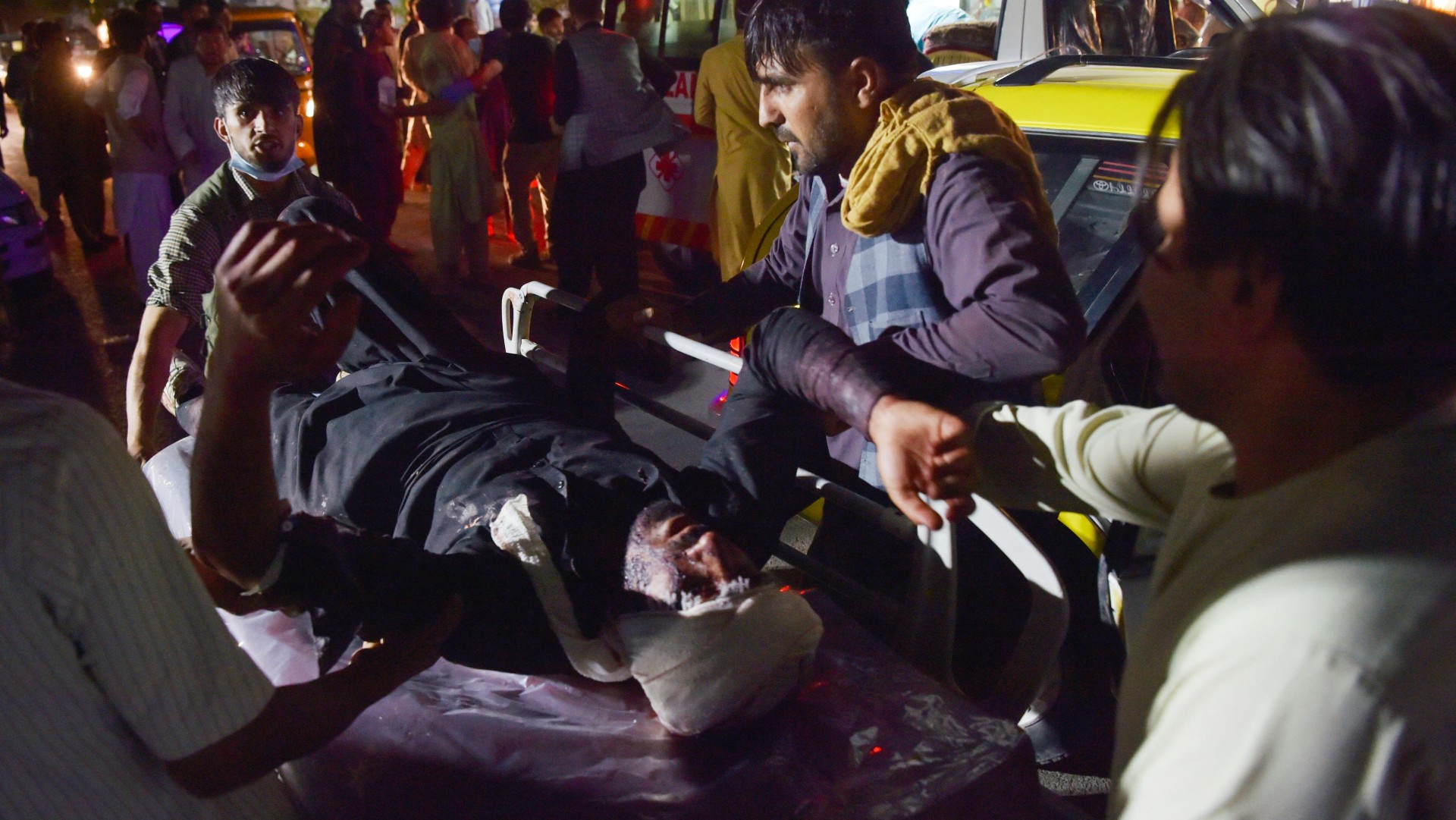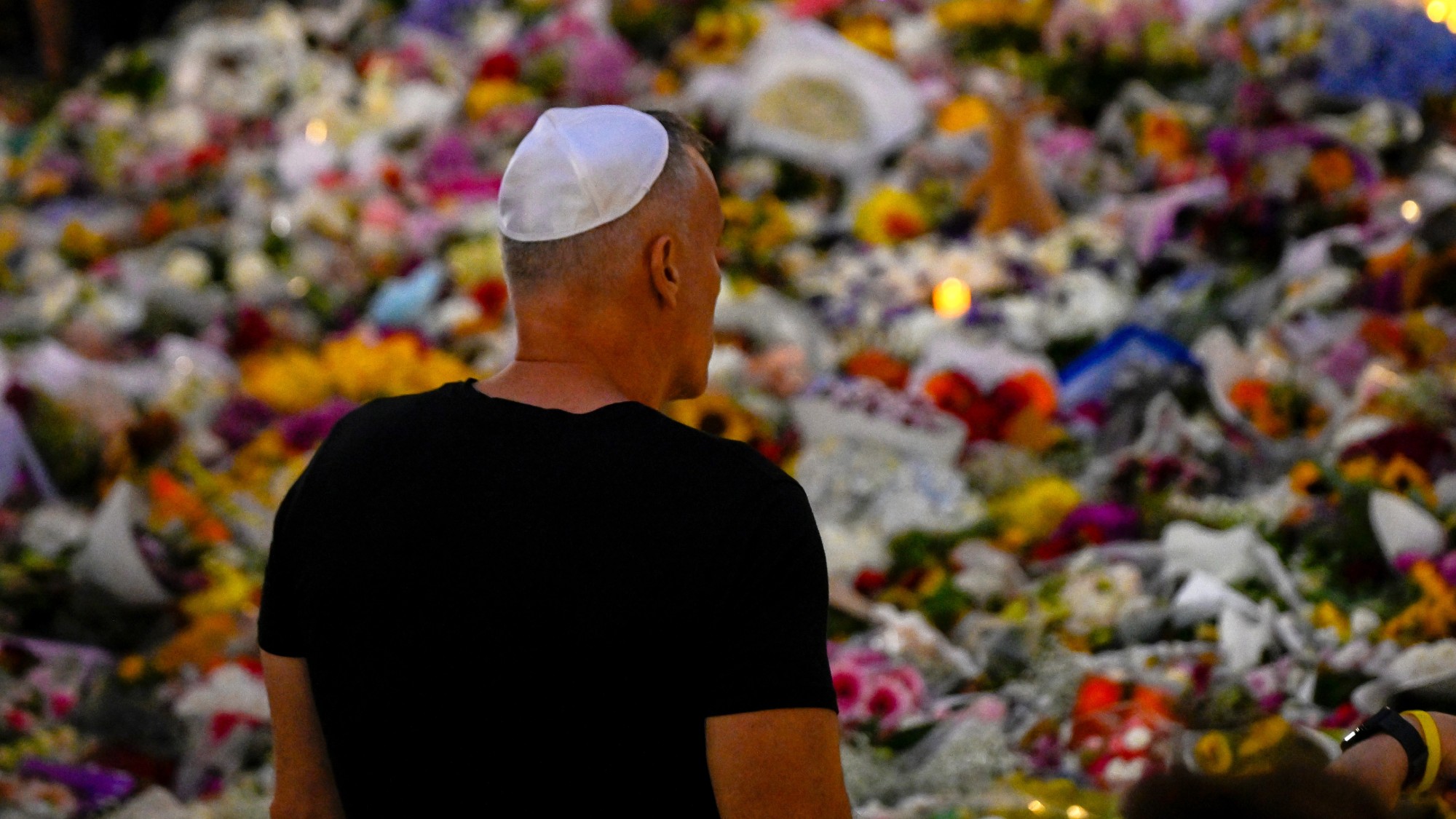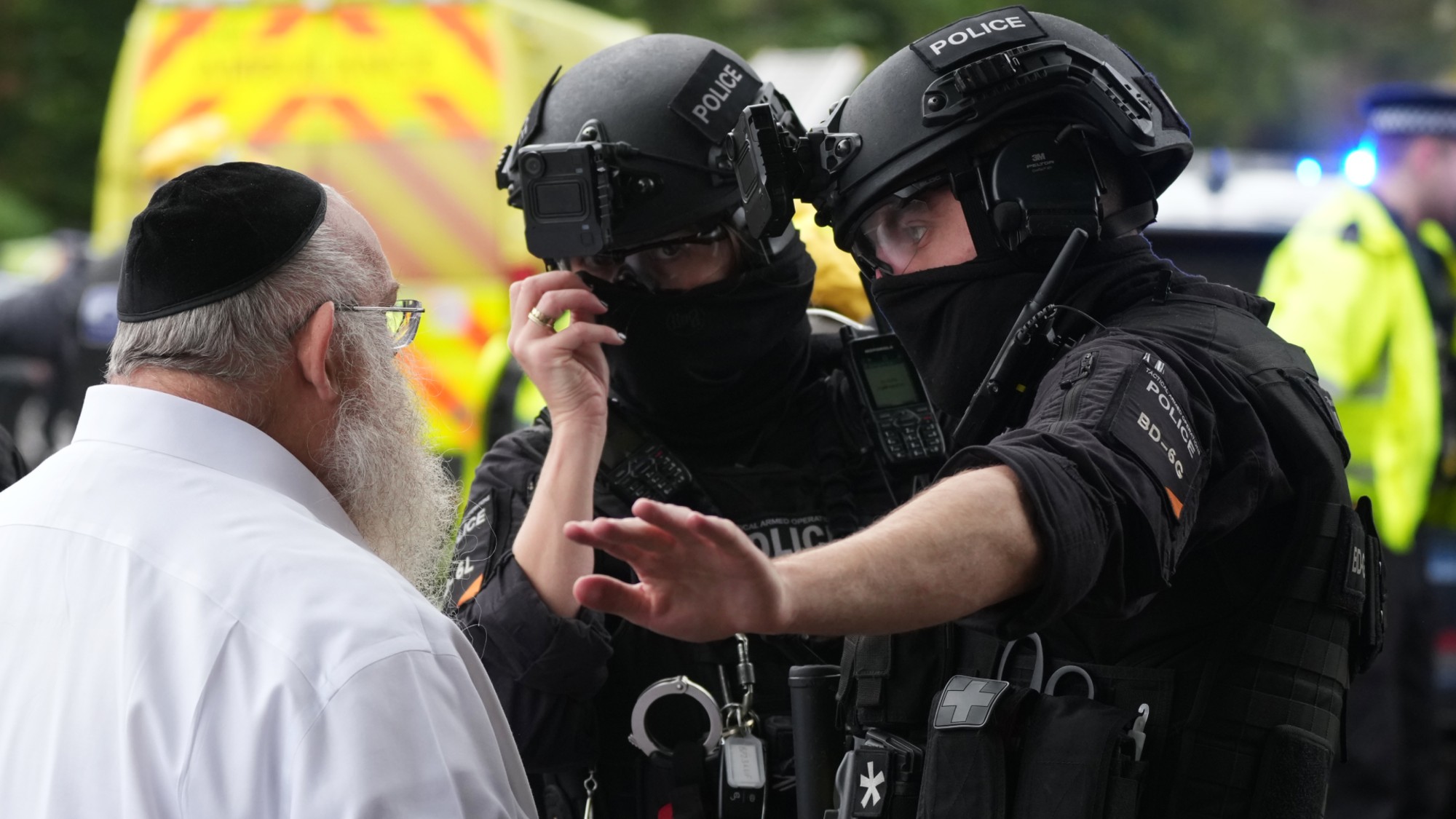Will Afghanistan become a safe haven for terrorists under the Taliban?
Multiple explosions reported near Hamid Karzai International Airport in Kabul

A free daily email with the biggest news stories of the day – and the best features from TheWeek.com
You are now subscribed
Your newsletter sign-up was successful
Multiple explosions have been reported outside the airport in Kabul where US and Nato forces are evacuating troops and Afghan civilians.
The first blast, which was followed by a burst of gunfire, is thought to have been caused by a suicide bomber using an improvised explosive device. A Taliban official told Reuters that “at least 13 people including children” were killed, adding that multiple Taliban guards were wounded as well. Some US troops are also believed to have been injured.
Pentagon spokesperson John Kirby confirmed in a tweet that there was an explosion outside of the airport “that resulted in a number of US and civilian casualties”, adding: “We can also confirm at least one other explosion at or near the Baron Hotel.”
The Week
Escape your echo chamber. Get the facts behind the news, plus analysis from multiple perspectives.

Sign up for The Week's Free Newsletters
From our morning news briefing to a weekly Good News Newsletter, get the best of The Week delivered directly to your inbox.
From our morning news briefing to a weekly Good News Newsletter, get the best of The Week delivered directly to your inbox.
Taliban spokesperson Zabihullah Mujahid said the group “are committed to the international community and will not allow terrorists to use Afghanistan as a base for their operations”. He added that the Taliban had warned US troops about possible terrorist groups such as Isis.
As the evacuation of Afghanistan nears its deadline, fears are growing that handing the country back to the Taliban could see it once again become a “hotbed” for extremists. Security experts have said that under Taliban rule, Afghanistan could soon be “providing sanctuary for extremists”, including al-Qaeda and Isis-affiliated groups, CNBC reported.
While “the militant group has said it would not allow other terrorist organisations to use Afghanistan as a base to launch attacks”, many experts “expressed doubts over its pledge”, the broadcaster added, citing its 20-year alliance with al-Qaeda and the operation of the Islamic State of Khorasan (Isis-K) on Afghan soil.
Haven for terror
A free daily email with the biggest news stories of the day – and the best features from TheWeek.com
US troops have “been battling the Taliban and their militant partners in Afghanistan, al-Qaeda and the Haqqani network, for 20 years”, The New York Times (NYT) said. But the biggest threat to the evacuation “is a common rival that is lesser known”, namely Isis-K.
Isis-K, which have previously overrun large parts of Syria and Iraq to establish a so-called “caliphate”, is “a separate and more extreme threat than even the Taliban”, according to The Times’ diplomatic correspondent Catherine Philp.
Drawn mainly “from fighters of the Pakistani Taliban”, Isis-K has also “raided the Afghan Taliban’s ranks” to swell the number of fighters at its disposal and has rapidly become a “sworn enemy of the Taliban” resulting in repeated clashes between the two, she added.
US military intelligence suggests that “threats from the group include a bomb-laden truck, suicide bombers infiltrating the crowd outside Hamid Karzai International Airport and mortar strikes against the airfield”, the NYT said.
“The threats lay bare a complicated dynamic between the Taliban, al-Qaeda and the Haqqani network, and their bitter rival, Isis-K”, potentially setting the scene for a “bloody struggle involving thousands of foreign fighters on both sides”.
Analysts have also raised concerns over the emergence of al-Qaeda in a Taliban-run Afghanistan, noting that the two groups have “never broken” their alliance despite two decades of US “military pressure and two years of negotiations in Qatar”, CNBC said.
Richard Fontaine, CEO of the Center for a New American Security, told the broadcaster that the Biden administration’s plan to control the threat of al-Qaeda from outside Afghanistan is “something of a gamble”, while a UN report published this year found that the two groups “remain closely aligned and show no indication of breaking ties”.
“The militant group has said it would not allow other terrorist organisations to use Afghanistan as a base to launch attacks”, CNBC added. However, Amir Handjani, a fellow at the Quincy Institute for Responsible Statecraft, noted that “the Taliban doesn’t really stick to its ideals”, adding: “We will have to wait and see.”
During its successful sweep across Afghanistan, the Taliban reportedly released between 5,000 and 7,000 prisoners from Parwan Detention Facility, the country’s main military prison, which is located close to the former US headquarters at Bagram airbase. Built by the Bush administration, the facility was holding al-Qaeda and Taliban fighters.
A separate UN report in June found that 8,000 to 10,000 fighters from Central Asia, the North Caucasus region of Russia, Pakistan and the Xinjiang region of China have entered Afghanistan in recent months. Most of these fighters are now associated with the Taliban or al-Qaeda, the report said, while others have allied themselves with Isis-K.
“Afghanistan has now become the Las Vegas of the terrorists, of the radicals and of the extremists,” Ali Mohammad Ali, a former Afghan security official, told the NYT. “People all over the world, radicals and extremists, are chanting, celebrating the Taliban victory. This is paving the way for other extremists to come to Afghanistan.”
Taliban sanctuary
Former US national security advisor John Bolton last week told CNBC that the invasion of Afghanistan in 2001 was targeted at ousting the Taliban and the “sanctuary they had provided to al-Qaeda”. And since 2014, when Nato formally ended its combat mission, security in the country has improved under the watchful eye of a 13,000-strong force there to help train Afghan forces and support counter-terrorism operations.
But with the departure of Nato troops, there is now “zero question” that Afghanistan will once again become “a durable safe haven for terror groups like al-Qaeda who intend to conduct attacks abroad”, according to Jennifer Cafarella, a national security fellow at the Institute for the Study of War.
“The propaganda victory the Taliban and al-Qaeda have gained by seizing control of Afghanistan is hard to overstate,” Cafarella told Business Insider. “Attacks in the West inspired by the outcome in Afghanistan are likely in coming weeks and months.”
The extremists’ network “will be invigorated globally, with significant ramifications across Africa, the Middle East, and parts of East Asia”, she added.
“The Taliban’s victory in Afghanistan positions al-Qaeda to reclaim its role at the leadership of the global Salafi jihadist movement from Isis, potentially redirecting the flow of foreign fighters and new recruits back to al-Qaeda.”
Not everybody is so convinced of the national security threat, however, with Daniel Byman, a professor at Georgetown University’s School of Foreign Service, writing in Foreign Affairs that “Afghanistan’s reversion to its pre-9/11 role as a safe haven for jihadi terrorism is unlikely”.
“Although the Taliban’s victory will undoubtedly make Washington’s counterterrorism policy far harder to carry out, al-Qaeda’s weakness, the Taliban’s own incentives, and post-9/11 improvements in US intelligence coordination, homeland security, and remote military operations all reduce the threat,” Byman said.
The “humiliating departure” of the US and Nato forces “that temporarily expelled both the Taliban and al-Qaeda 20 years ago has come as a massive morale boost to anti-Western jihadists all over the world”, the BBC reported. And the “potential hiding places for them now opening up in the country's ungoverned spaces are a tempting prize”.
Unlike the Taliban, which is focused on cementing its hold over Afghanistan, Isis-K has “repeatedly articulated its desire to attack the United Nations and Western powers”, added The Times’ Philp, while attacks on Afghan civilians are also expected as the group looks to “strike the capital, Kabul, as it has before with suicide bombings”.
“Nearly 20 years after the US invasion and the onset of the broader global war on terror” the fear that Afghanistan could provide sanctuary for extremists is back on the agenda, Business Insider said.
And the departure of allied troops from Afghanistan “provides an opportunity” for global terror groups to reaffirm their roots in the country.
-
 The environmental cost of GLP-1s
The environmental cost of GLP-1sThe explainer Producing the drugs is a dirty process
-
 Greenland’s capital becomes ground zero for the country’s diplomatic straits
Greenland’s capital becomes ground zero for the country’s diplomatic straitsIN THE SPOTLIGHT A flurry of new consular activity in Nuuk shows how important Greenland has become to Europeans’ anxiety about American imperialism
-
 ‘This is something that happens all too often’
‘This is something that happens all too often’Instant Opinion Opinion, comment and editorials of the day
-
 How the ‘British FBI’ will work
How the ‘British FBI’ will workThe Explainer New National Police Service to focus on fighting terrorism, fraud and organised crime, freeing up local forces to tackle everyday offences
-
 How the Bondi massacre unfolded
How the Bondi massacre unfoldedIn Depth Deadly terrorist attack during Hanukkah celebration in Sydney prompts review of Australia’s gun control laws and reckoning over global rise in antisemitism
-
 Who is fuelling the flames of antisemitism in Australia?
Who is fuelling the flames of antisemitism in Australia?Today’s Big Question Deadly Bondi Beach attack the result of ‘permissive environment’ where warning signs were ‘too often left unchecked’
-
 Ten years after Bataclan: how has France changed?
Ten years after Bataclan: how has France changed?Today's Big Question ‘Act of war’ by Islamist terrorists was a ‘shockingly direct challenge’ to Western morality
-
 Arsonist who attacked Shapiro gets 25-50 years
Arsonist who attacked Shapiro gets 25-50 yearsSpeed Read Cody Balmer broke into the Pennsylvania governor’s mansion and tried to burn it down
-
 Manchester synagogue attack: what do we know?
Manchester synagogue attack: what do we know?Today’s Big Question Two dead after car and stabbing attack on holiest day in Jewish year
-
 The Miami Showband massacre, 50 years on
The Miami Showband massacre, 50 years onThe Explainer Unanswered questions remain over Troubles terror attack that killed three members of one of Ireland's most popular music acts
-
 The failed bombings of 21/7
The failed bombings of 21/7The Explainer The unsuccessful attacks 'unnerved' London and led to a tragic mistake